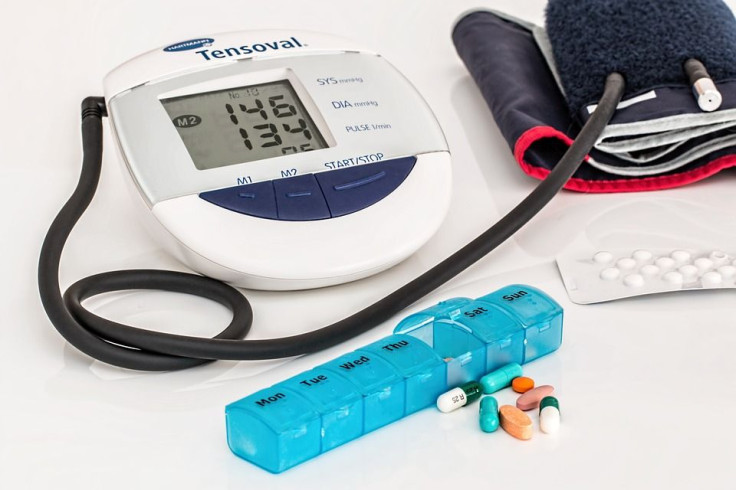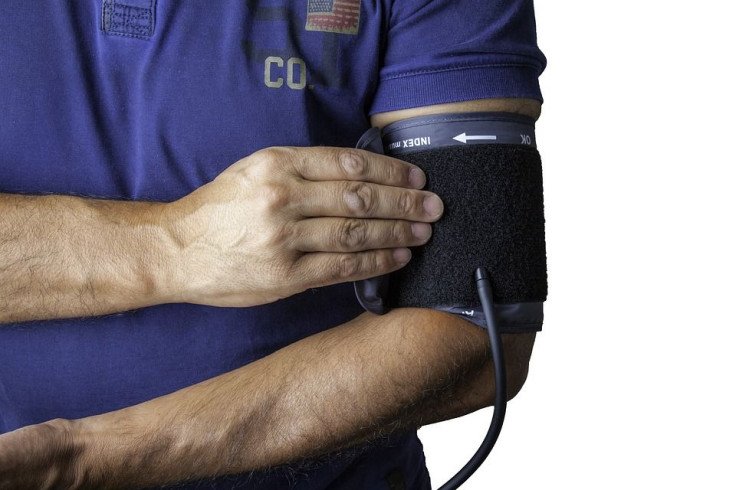Suffering From High Blood Pressure? Here Are 7 Things You Can Do To Lower It

Cliche as it may be, recent world events have proven that health truly is wealth. During a global pandemic, one must do everything to stay healthy, especially since COVID-19 is particularly dangerous to older and immuno-compromised individuals. Another observation among experts shows that people with heart disease and related conditions, like high blood pressure, are also at a higher risk of contracting the virus.
In fact, high blood pressure, or hypertension, is actually considered a silent killer, as its effect on a person's body can be very dangerous and, at times, fatal. Unfortunately, it’s possible that many people who have it may not be aware that they do because it develops slowly and does not always show any symptoms. So, if you think you could be suffering from it, it is advisable to see a medical professional at once. Although it cannot be cured, it can be managed and prevented through significant lifestyle changes.
Here are a few things you can do if you think you are at risk.
1. Know your risk factors
Early detection is key when it comes to high blood pressure. Since the illness does not always show symptoms, it is important to keep yourself informed. This allows you to know what changes to make in order to lower your chances of getting hypertension.

There are risk factors to consider. Physical and hereditary risk factors, such as family history, age and gender, are ones you can’t do anything about. However, knowing that you have an increased chance of getting hypertension should help you prevent it. Meanwhile, modifiable risk factors are ones that you can control. Included in this are poor diet and the lack of physical activities, so it is ultimately up to you to reduce your chances of having high blood pressure.
2. Maintain healthy body weight
Approximately one in three American adults have hypertension, meaning that over 100 million suffer from it. The risk of getting it also increases as one ages, as it usually develops in someone who's in their late 30s. However, because of rising obesity in the U.S., younger people have started to acquire the illness much earlier. After all, the risk increases greatly for people who are overweight. This is why if you want to lower your blood pressure, one thing you should aim for is a healthy BMI.
3. Switch to a healthy and hearty diet
When you were younger, you probably used to think that your body was invincible. You scarfed down burgers, fries and other fast-food staples without a second thought. But as with all things in life, you usually get what you give. So, if you fill your body with junk, there's only so much time until you begin feeling unhealthy.

One simple change you can do to manage your blood pressure is to limit your sodium intake. Salty food may taste good, but if you load up on it, then you're suddenly on the fast track to hypertension. This is because too much sodium in your diet can make your body retain fluid, which in turn causes a spike in your blood pressure.
You can also take a cue from monkeys and eat more bananas, as increasing the amount of potassium in your diet can help balance the sodium in your cells. Thus, the proper inclusion of potassium in your diet is critical to ensuring good health.
A healthy and hearty diet follows the DASH (Dietary Approaches to Stop Hypertension) eating plan, which promotes the inclusion of vegetables, fruits and whole grains in your diet. Instead of your usual serving of fatty steak, you can get your proteins from healthier alternatives, like fish, poultry, beans, nuts and vegetable oils. The DASH eating plan also asks that you limit your sugar intake.
4. Bid your vices goodbye
You probably already know that vices are terrible for your health. Be it a glass of whiskey, a cigarette, or a third cup of coffee, too much of even just one of these will eventually affect your body. Let's break down some of those bad habits.
First is alcohol. While the occasional glass is fine, studies have shown that consistent alcohol intake creates a sustained rise in blood pressure. Therefore, binge drinking and long-term heavy drinking can lead to chronic hypertension. This also puts you at risk of heart diseases, such as atherosclerosis (hardening and narrowing of arteries).
Another is smoking. Apart from it being dangerous to your lungs, the nicotine in cigarettes raises your blood pressure. So while smoking does not automatically give you hypertension, you experience an immediate but temporary rise in your blood pressure. You also get an increase in your heart rate, which narrows your arteries and hardens its walls, making you more prone to blood clots. This stress puts you at a high risk of a heart attack or stroke.
When there's too much of something, it can be dangerous. This includes addiction to substances like sugar. Some studies suggest that sugar is worse than salt in increasing your risk of hypertension. Thankfully, you don't need to rely on willpower to avoid satisfying your sweet tooth. There are supplements like Naavudi that you can take to help lower your blood sugar. Made only with organically grown ingredients, it is said to have a good effectivity rate of improving your natural insulin function.
5. Get enough sleep

Studies show that the lack of sleep can raise your blood pressure. The recommended amount of rest for adults is 7 to 8 hours, and this is because sleep helps your body control the hormones that it needs to boost your metabolism and regulate stress, which is another risk factor for hypertension. Any hormonal imbalance could lead to hypertension and even heart disease.
6. Say no to stress
As previously mentioned, stress is another factor to consider in managing your blood pressure. While it is normal to experience it, it can sometimes build up. This results in chronic stress, which, if unaddressed, can lead to higher blood pressure.
Some of its symptoms include depression, anxiety, heart palpitations, nausea and even sleep problems. While there's no evidence directly linking hypertension to it, the hormones that our bodies produce when under stress may lead to different heart diseases.
7. Do not be afraid to ask for help
There is no shame in asking for guidance and assistance. If you do not think that you can improve your lifestyle on your own or do not know where to start, you can always speak with medical professionals, especially if you notice symptoms like chest pains, shortness of breath and changes in vision.

You can also look at food supplements and vitamins that are formulated to help you with your concerns. Do your research on the best the market has to offer, and of course, check with your doctor if it fits into your diet. CLE Holistic Health, a known natural supplement provider from Canada, created Alistrol, which are veggie capsules that incorporate organic ingredients into your diet to lower your blood pressure.
There are so many options available, but if you're having trouble with your diet plan, you can look into getting help from a nutritionist. If bidding beer goodbye is your weakness, you can join support groups like Alcoholics Anonymous. Any problem you have, there is an equivalent group of people that is willing to help you in your journey to having a better life — and all you have to do is ask.





















